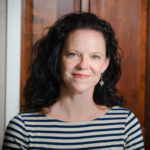According to the WHO, around 47 million people worldwide have dementia. Colorado State University researchers are now trying to find ways that cognitive and functional ability can be improved in people with dementia and other aging adults through the use of engaging environments.
It all started at the symphony

This research team grew out of the initial data from a study known as the B-Sharp program. In the B-Sharp program, people with dementia and their caregivers were given passes to five concerts put on by the Fort Collins Symphony.
“We found that engagement in the B-Sharp program resulted in improved performance on a series of cognitive tests after a nine-month period,” explained Deana Davalos, associate professor at in the Department of Psychology at CSU and the director of CSU’s Aging Clinic of the Rockies. “This happened in spite of including participants with a neurodegenerative disorder.”
This study’s promising results led to research that is now under way in the “Enriched Environments for the Healthy, Aging Brain” project, part of the Catalyst for Innovative Partnership Program funded by CSU’s Office of the Vice President for Research. The project includes researchers from the Colleges of Natural Sciences, Liberal Arts and Health and Human Sciences.
“In our continued studies,” said Davalos, “we hope to better understand the mechanisms of enriched environments that are most beneficial for the aging brain. We’re interested to see whether we can deliver the programs in other ways, like through virtual reality and other types of activities, without losing effectiveness.”
The next movement

The research team includes Davalos; Jeni Cross, associate professor in the Department of Sociology at CSU and a co-director of the Institute for Research in Social Sciences; Lindsey Wilhelm, assistant professor of music therapy and a coordinator of clinical practicum in the School of Music, Theatre and Dance; and Aga Burzynska, an assistant professor in the Department of Human Development and Family Studies, as well as the Molecular Cellular and Integrative Neurosciences graduate program. Other faculty members include Meara Faw, Laura Malinin, and Wendy Wood. The university researchers have a partnership with Kaden Strand of Blue Penguin LLC.

“This team offers the opportunity to collaborate and interact with researchers from across campus with the end goal of improving interventions for aging adults, such as people with dementia and their caregivers,” explained Wilhelm. The project will use stimulating and immersive environments to test the effects on cognitive function.
“I am especially excited about the opportunity to carry out some of the complex and immersive interventions in people’s homes, using virtual reality,” said Burzynska.

The program includes many facets of immersive environments, including virtual reality, equine therapy, visual design, in-home music, and dance. “I’m a community sociologist,” explained Cross, “and this program is community designed and implemented.”
The program will use the various environments to stimulate the brain, measuring the cognitive function of the individuals before and after the stimuli. A system called RBANS (Repeatable Battery for the Assessment of Neuropsychological Status) measures cognitive performance in thirty-minute intervals by testing immediate memory, visuospatial memory, language, attention, and delayed memory. In addition to the cognitive tests, the individuals and their caregivers will periodically be given assessments to discern their mood, well-being, and daily function.
The grand finale
The team hopes to find a set of non-pharmacological interventions for aging adults, centered around engaging environments, that can be used to improve the functioning and well-being of people with dementia and their caregivers. “In this project, we hope to find similar results to the B-Sharp program for other activities,” said Cross. “I am specifically interested in examining how building social connectedness relates to health outcomes.”
The study’s findings will hopefully show how environmental stimulation helps us optimize our cognitive capacity and brain health as we age, indicate which environments are viable, and allow the team to create intervention plans based on interests and mobility of the aging population and people with cognitive impairment, such as dementia.